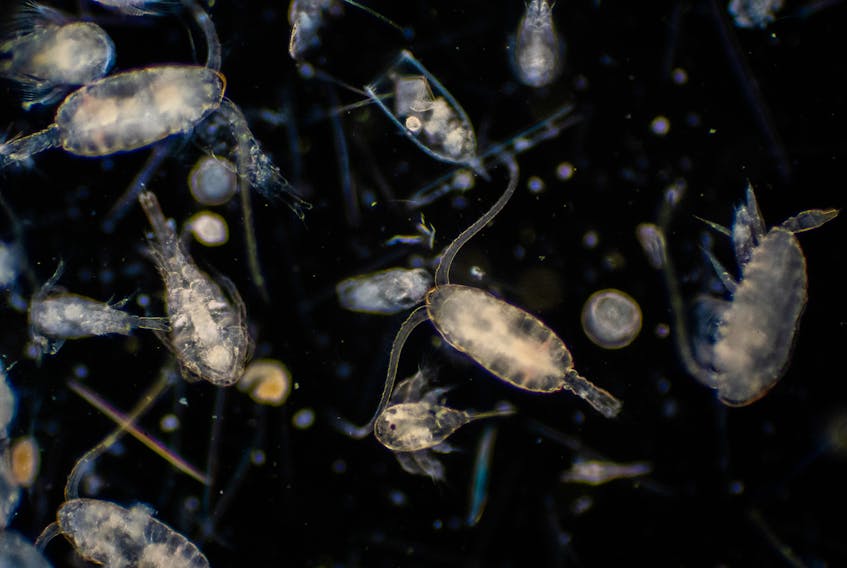Imagine you’re a fragile little striated sleeve of jelly.
Pulse, pulse. Pulse.
You’re pulsing happily in the ocean, jetting forward in regular but staccato motion, not a care in the world, suspended in the salty universe, the sunlight angling down through the waves and washing over you.
Or maybe your last name is Pachyderma. (Your first name is Neogloboquadrina, but you just go by N. because Neogloboquadrina is just too hard a first name for anyone to get their mouths around.) You’re a foraminifera, building up your fragile little chambered shell, minding your own business and grabbing grub with your pseudopods.
At least one study from Australia has found that seismic testing can kill zooplankton in water within 1.2 kilometres of each seismic air gun blast. The mortality rate can be as high as 60 per cent.
Just two of thousands of tiny creatures that harvest either the sunlight or even tinier scraps of life, the basic bottom of the food chain for pretty much everything in the oceans.
There’s only one problem: plankton numbers have been falling dramatically in waters off this province, and some are questioning whether the cause might be seismic testing for the offshore oil industry.
It’s easy to imagine that tiny, fragile life forms might well have a hard time dealing with enormous pulses of sound travelling through the water column at more than 250 decibels. (For comparison purposes, a jet engine at takeoff is 140 decibels, a shotgun firing is 155 decibels, and a rocket launch is 180 decibels.) Seismic testing is strong enough to pass through water and through the ocean floor, deep into the rock strata, before bouncing back at different rates to indicate the makeup of rock deep into the ground.
And, presumably, through jelly sleeves and calcium carbonate shells as well.
At least one study from Australia has found that seismic testing can kill zooplankton in water within 1.2 kilometres of each seismic air gun blast. The mortality rate can be as high as 60 per cent.
It’s food for thought, especially as the provincial government is so bullish on rapidly expanding the offshore oil sector, and has gotten directly involved in seismic work itself.
Don’t expect the provincial government to be taking the concerns seriously just yet, despite the fact that the fishery is an important — and renewable — industry in this province. Here’s Natural Resources Minister Siobhan Coady, asked in the House of Assembly about the effects of seismic testing on marine life: “I will remind the member opposite that there have been multiple studies, including a most recent one by the Department of Fisheries and Oceans, that have not found any impact.”
One of the great ironies?
Dead plankton already have a role in some oil exploration.
Fossils of foraminifera’s shells help the oil industry. Facets of their short lives let paleontologists pinpoint particular rock strata where oil is more likely to be found.
Thanks for the help, dead foraminifera.
But maybe, just maybe, we should be absolutely sure about what we’re doing to the living ones, too.









